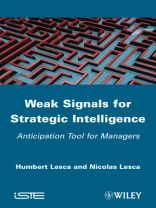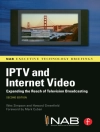The expression: ‘We did not see it coming!’ has often been heard in recent years from decision makers at the highest levels of responsibility in the private and public sectors. Yet there were actually early (warning) signals, but they were often ignored or not used due to a lack of appropriate methodology. To avoid such blind spots, this book provides answers to the question ‘how to anticipate’.
The concept of a ‘weak signal’ is at the heart of the proposed methods. After presenting examples of this concept, the authors provide original and validated answers to questions of feasibility: How to recognize a weak signal? How to exploit it? Numerous applications are presented.
表中的内容
Introduction xi
Chapter 1. Concepts, Issues and Hypotheses 1
1.1. Introduction: governance and radar 1
1.2. The organization’s environment and its governance
through a ‘storm’ 8
1.3. Anticipation (act of looking forward) 15
1.4. Anticipative information: two types 23
1.5. Weak signals 25
1.6. Detecting weak signals 43
1.7. Interpreting, amplifying and exploiting weak signals to
support strategic decision making 47
1.8. Puzzle® method for the operationalization of CCM
59
1.9. Global VASIC process for detecting, recognizing and
utilizing weak signals 69
1.10. Conclusion 79
Chapter 2. Detecting, Recognizing and Corroborating a Weak
Signal: Applications 81
2.1. Recognition of a weak signal: examples 82
2.2. Making a new weak signal reliable 95
2.3. Conclusion 101
Chapter 3. Utilization of Weak Signals, Collective Creation
of Meaning: Applications 105
3.1. The Roger case: should we fear this new entrant to our
industry? (the banking sector) 105
3.2. The case for ‘valorizing CO2 as a commodity’: a
preliminary study for the selection of a new
strategic direction 119
3.3. The Danone case. The ministry is worried: are there signs
showing that companies will destroy jobs over the next two years?
Could Danone leave France? 132
3.4. The Opel case: initiating collective transversal
intelligence to aid strategic decision-making 147
3.5. Conclusion 163
Chapter 4. Preparation of Weak Signals for Sessions in
Collective Creation of Meaning: Applications 169
4.1. Introduction: two starting situations 169
4.2. The Roger case (continued): how are the news briefs used in
the Roger CCM session prepared? 170
4.3. CO2 valorization case: automatic search for ‘news
briefs’ 174
4.4. The Danone case: preparation of the weak signals 181
4.5. Software modules for assisting in the automatic search for
news briefs 185
4.6. Conclusion 196
Conclusion 199
Glossary 203
Bibliography 217
Index 227
关于作者
Humbert Lesca is Emeritus Professor at Pierre Mendès France University, Grenoble, France and director of research at the CERAG-CNRS (center for studies and research applied to management) laboratory.
Nicolas Lesca is Professor at Claude Bernard University, Lyon, France, and a director of research at the CERAG-CNRS laboratory.












